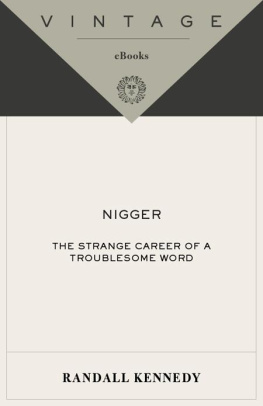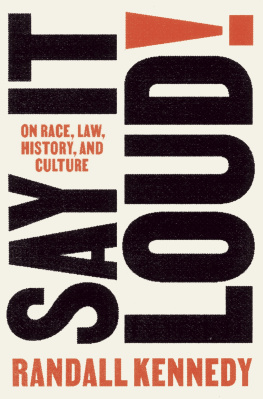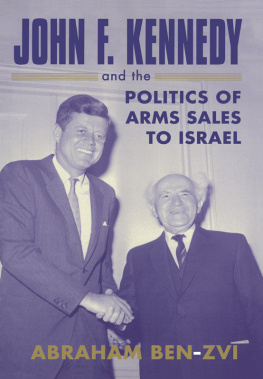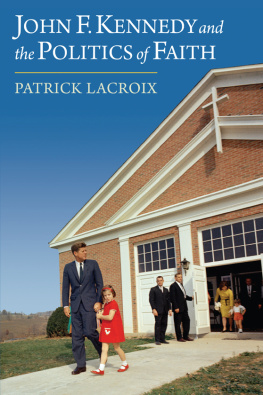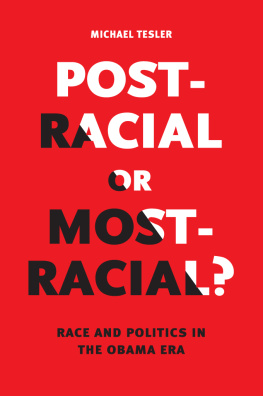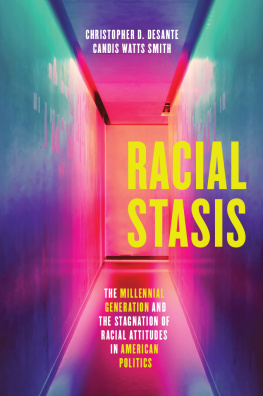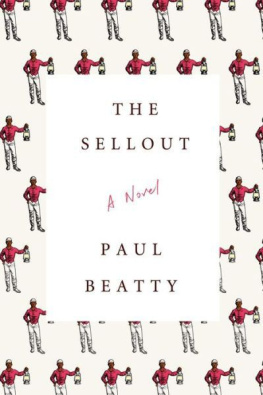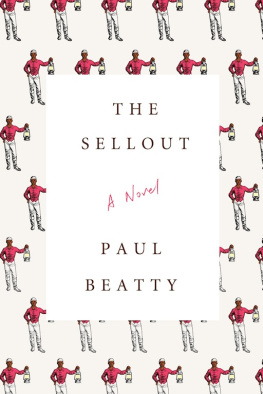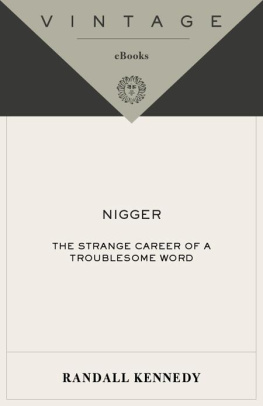Randall Kennedy - Sellout: The Politics of Racial Betrayal
Here you can read online Randall Kennedy - Sellout: The Politics of Racial Betrayal full text of the book (entire story) in english for free. Download pdf and epub, get meaning, cover and reviews about this ebook. year: 2008, publisher: Vintage, genre: Politics. Description of the work, (preface) as well as reviews are available. Best literature library LitArk.com created for fans of good reading and offers a wide selection of genres:
Romance novel
Science fiction
Adventure
Detective
Science
History
Home and family
Prose
Art
Politics
Computer
Non-fiction
Religion
Business
Children
Humor
Choose a favorite category and find really read worthwhile books. Enjoy immersion in the world of imagination, feel the emotions of the characters or learn something new for yourself, make an fascinating discovery.

- Book:Sellout: The Politics of Racial Betrayal
- Author:
- Publisher:Vintage
- Genre:
- Year:2008
- Rating:5 / 5
- Favourites:Add to favourites
- Your mark:
- 100
- 1
- 2
- 3
- 4
- 5
Sellout: The Politics of Racial Betrayal: summary, description and annotation
We offer to read an annotation, description, summary or preface (depends on what the author of the book "Sellout: The Politics of Racial Betrayal" wrote himself). If you haven't found the necessary information about the book — write in the comments, we will try to find it.
Sellout: The Politics of Racial Betrayal — read online for free the complete book (whole text) full work
Below is the text of the book, divided by pages. System saving the place of the last page read, allows you to conveniently read the book "Sellout: The Politics of Racial Betrayal" online for free, without having to search again every time where you left off. Put a bookmark, and you can go to the page where you finished reading at any time.
Font size:
Interval:
Bookmark:
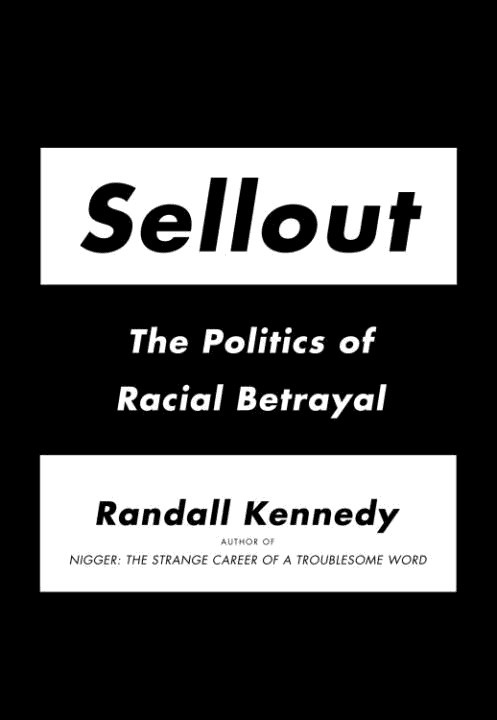
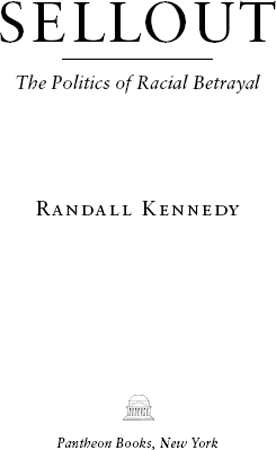
Contents
This book is dedicated to
Judge Henry Harold Kennedy, Jr.
Exemplary father, brother, son, husband, and friend
PREFACE
Do not be a slave to any form of selling out.
Oprah Winfrey, Commencement Address, Howard University, May 2007
The specter of the sellout haunts the African-American imagination. A long-oppressed minority situated in the midst of a dominant white majority, blacks fear that whites will favor and corrupt acquiescent Negroes who, from positions of privilege, will neglect struggles for group elevation. African Americans fear that whites will empower Oreos who look black but think white. African Americans fear that whites will promote black free riders and defectors who sap solidarity and discourage effective strategies for resisting subordination. Every social groupfrom the union to the organized crime family to the nation-stateconfronts the challenge of exacting loyalty to the collective in the face of self-interest, hardship, or even danger.1 That is why those engaged in the maintenance of groups expend considerable energy seeking to discover free-riding cheaters (think of the Internal Revenue Service in pursuit of tax evaders) or deceptive defectors (think of the Department of Justice in pursuit of traitors). If an entity as powerful as the United States of America periodically suffers from hysteria over perceived threats of internal subversion, it should be no surprise that African Americansa marginalized, stigmatized, vulnerable racial minoritygrapple with anxieties about racial betrayal.
A sellout is a person who betrays something to which she is said to owe allegiance. When used in a racial context among African Americans, sellout is a disparaging term that refers to blacks who knowingly or with gross negligence act against the interest of blacks as a whole. Defining it that cleanly, however, offers a misleading sense of clarity. Sellout is a messy, volatile, contested term about which disagreement is rife, especially when it comes to applying the label to specific persons or conduct.2
Sometimes Uncle Tom is used interchangeably with sellout. In a Washington Post profile of Supreme Court Justice Clarence Thomas, two journalists write that Uncle Tom is among the most searing insults a black American can hurl at a member of his own race.3 They describe Uncle Tom as a synonym for sellout, someone subservient to whites at the expense of his own people.4 This usage is ironic. The original Uncle TomHarriet Beecher Stowes Uncle Tomwas a character who chose death at the hand of his notorious owner, Simon Legree, rather than reveal the whereabouts of runaway slaves. Still, there are those who use Uncle Tom to refer to any black whose actions, in their view, retard African-American advancement. Others are more discriminating. For many of them, the label sellout is more damning than Uncle Tom or kindred epithetsAunt Thomasina, Oreo, snowflake, handkerchief head, white mans Negro, Stepin Fetchit. While the latter insults refer to blacks who are deemed to be servile or otherwise lacking in an appropriate sense of racial pride or racial duty, sellout refers to someone who is dangerously antagonistic to blacks well-being. He is worse than an enemy. An enemy is socially distant. The sellout, by contrast, is (or is thought to be) a member of the family, tribe, nation, or race. The sellout is a person who is trusted because of his perceived membership in a given grouptrusted until he shows his true colors, by which time he has often done harm to those who viewed him as a kinsman or fellow citizen.
Reputable people use sellout as an insult, and it is broadly seen as serving a useful purpose by identifying and stigmatizing a real menace: the black race traitor. Thus, a person accused of being a sellout will typically want to refute the charge, since, if it is believed, the indictment will generate all manner of negative consequences, including ostracism or even reprisal.
Suspicions of racial betrayal in black America have a long history. The extraordinary Martin R. Delany, whom some have dubbed the father of black nationalism, was fired upon by black militiamen who denounced him as a traitor when, in the 1870s, he rejected the Republican Party, allied himself with the Democrats, and campaigned for a former Confederate general and opponent of Reconstruction.5
Suspicions regarding racial betrayal continue to be omnipresent. From the outset of his historic presidential campaign, Barack Obama has had to deal with doubts about his loyalty to blackness because of his ancestry (his mother was white), his upbringing (he was raised in Hawaii, apart from a cohesive black community), and perhaps most of all because many white people have strongly supported him. Discussing Obama, journalist Peter Beinart rightly noted that being the good black is tricky. The more whites love you, the more you must reassure your own community that you are still one of them. And the more you do that, the more you jeopardize your white support.6 Obama himself addressed the issue squarely in a speech to the National Association of Black Journalists. Many blacks, he observed, remain ensnared by the notion that if you appeal to white folks, there must be something wrong.7
Questions regarding racial loyalty also dog Condoleezza Rice, Clarence Thomas, Vernon Jordan, Colin Powell, and the list goes on. Indeed, with the possible exception of athletes, blacks who attain success in a multiracial setting will always sooner or later encounter whispered insinuations or shouted allegations that their achievement is attributable, at least in part, to selling out. Middle-class black folk, journalist Jill Nelson observes, tend to grow up feeling we have something to provenot just to white folks, but to just about everyone, including each other. We greet one another with skepticism, treating each other as potential Eurocentric selloutsuntil proven otherwise.8 Many Negroes are delighted when other blacks make it in their chosen field of endeavor; they see breakthroughs for one as advances for all. But for some, the very fact of success, especially when it stems substantially from white support, is reason enough to question an African Americans racial bona fides. Why, they ask, do the white folks permit this Negro to succeed? He must, they conclude, be collaborating.
In the pages that follow I describe the contours of African-American anxiety over racial betrayal. I follow this angst in the writings of black activists and intellectuals and chronicle episodes of alleged racial treachery. I show how allegations of selling out are currently triggered by a wide range of actionsmarrying a white person, passing, acting white, speaking white, thinking white, describing oneself as multiracial, living in a white neighborhood, serving as a police officer or a prosecutor, working as an attorney for an elite law firm, opposing affirmative action. I delineate the negative effects that attend allegations of racial treachery: the truncation of needed debate, the resentment of those who feel intimidated by monitors of black political correctness, the nourishing of demagogues whose leadership consists largely of impugning the racial authenticity of rivals. I differ, however, with those who maintain that in light of these side effects the concept of racial betrayal should be repudiated wholesale. This approach neglects the requirement for maintaining any communitypolicing the groups boundariesand the benefits of appropriate ostracism (the suppression of feelings, ideas, and conduct that ought to be suppressed). If there is going to exist an imagined community known as Black America, there must also exist some point at which a citizen of Black America can rightly be charged with having done something that betrays that polity. But because Black America is wildly heterogeneous, because determining what is in the best interest of diverse communities is almost always controversial, and because black Americans ought to have wide latitude in expressing themselves, extreme care should attend the making of any such allegations. All too often, in framing their indictments, prosecutors of sellouts display alarming sloppiness. I call for more care. I urge that indictments for racial betrayal be drawn more cautiously and taken more seriously. Those originating such charges should be held accountable if allegations are found wanting. Errant accusers should be made to feel the pain of ostracism just as their targets do.
Next pageFont size:
Interval:
Bookmark:
Similar books «Sellout: The Politics of Racial Betrayal»
Look at similar books to Sellout: The Politics of Racial Betrayal. We have selected literature similar in name and meaning in the hope of providing readers with more options to find new, interesting, not yet read works.
Discussion, reviews of the book Sellout: The Politics of Racial Betrayal and just readers' own opinions. Leave your comments, write what you think about the work, its meaning or the main characters. Specify what exactly you liked and what you didn't like, and why you think so.

